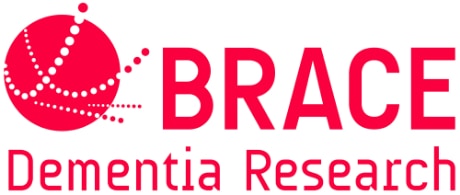The South West Dementia Brain Bank
BRACE has been a long-standing supporter of the South West Dementia Brain Bank (the Brain Bank), providing significant funding commitments since the charity’s creation in 1987.
It is one of the most influential dementia brain bank in the UK, with tissue samples from the bank underpinning dementia research projects across the country and globally.
The Brain Bank does not receive government funding and is reliant on charities like BRACE to keep their work going.
What is the Brain Bank?
The South West Dementia Brain Bank (SWDBB) is based in the Learning and Research building at Southmead Hospital in Bristol. It preserves and stores brain tissue from over 1,300 donors, including people who had various forms of dementia and older individuals without memory problems.
The donated tissue is frozen or fixed in formalin so it can be stored for a long time. Alongside each donation, comprehensive pathological information is collected. This preservation allows the tissue to remain viable for research for decades, supporting scientific studies across the UK and internationally.
It is a member of Brains for Dementia Research (BDR), a network of brain bank facilities across England and Wales. By coordinating work across brain banks, BDR aims to set a gold standard for brain donation, provide more information about the donors throughout their later life and increasing the number of brains donated. The Brain Bank is also a member of the UK Brain Bank Network, which was established to "provide high quality brain tissue to scientists and clinicians to carry out cutting edge neurosciences research" and to "support major initiatives on research into neurological disorders".
Why is the Brain Bank important?
The Brain Bank is a vital resource. New treatments cannot get to clinical trial stage without using human brain tissue first. Without it, we wouldn’t have drugs for Alzheimer’s disease.
Since 2011, the SWDBB has provided an extraordinary 81,577 tissue samples to researchers, enabling hundreds of peer-reviewed scientific publications and underpinning countless dementia research projects.
By comparing brain tissue from people who had dementia with tissue from those who did not, researchers can identify specific differences that reveal how dementia damages the brain. Post-mortem examination of brain tissue provides the only definitive diagnosis of dementia types, connecting specific symptoms with particular areas of brain damage.
BRACE has continuously supported the Brain Bank since 1987, providing over £2 million in funding during the past 20 years. With 761 potential donors currently registered and up to 50 new donations accepted annually, the Brain Bank continues to be a cornerstone of progress in dementia research.
For more information about the SWDBB, including how to become a brain donor, please click here
The Medical Research Council produced this short video about the SWDBB:
Share this page
